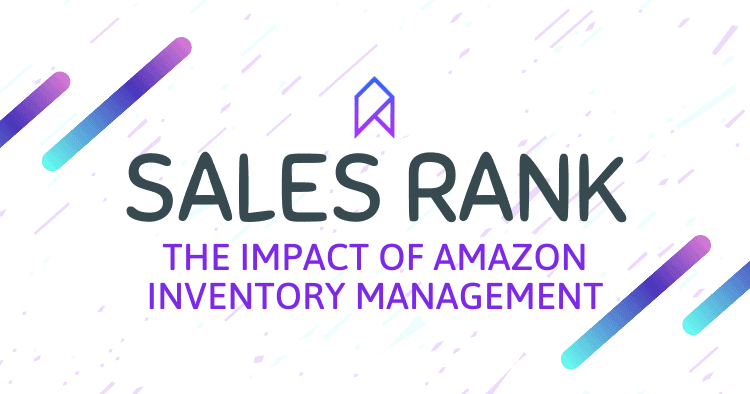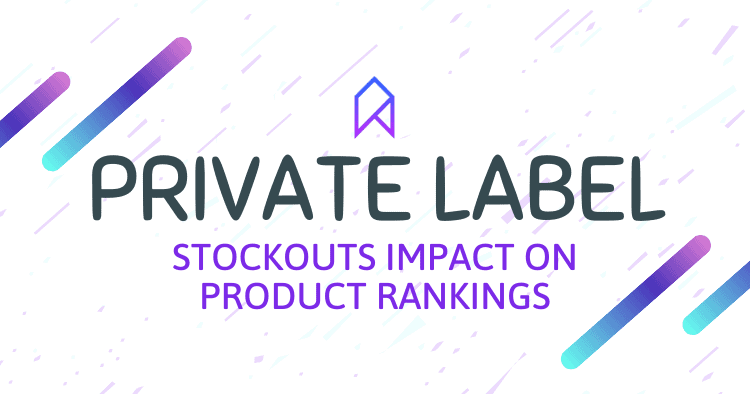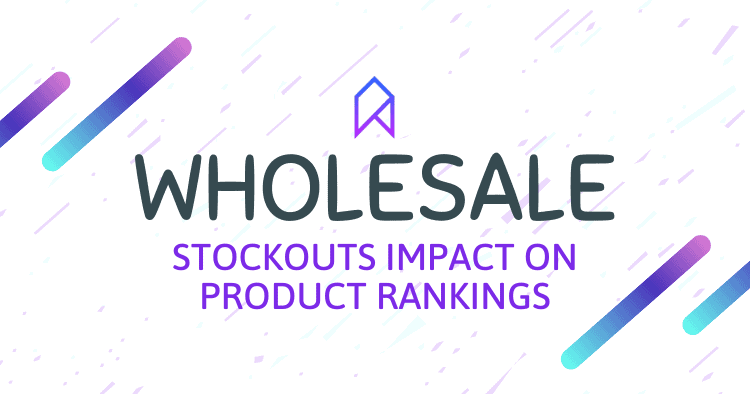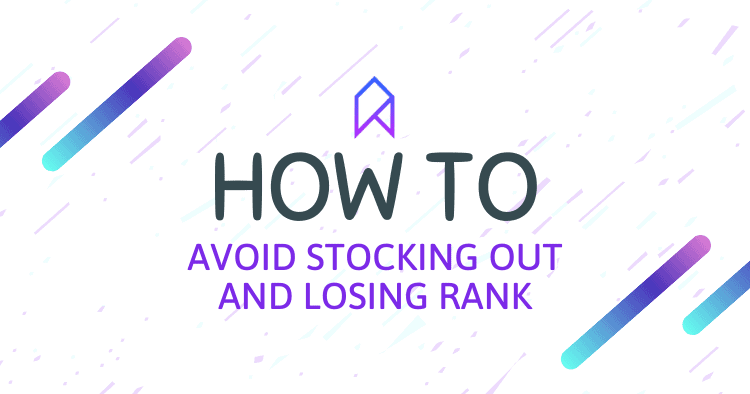
Amazon Inventory Impact On Ranking Products
And Why Some Wholesalers Prefer Stockouts
Every Amazon seller’s worst nightmare is running out of inventory, right? Not necessarily. But why?
The short answer: Not all Amazon sellers are alike.
There are multiple business models within the Amazonisphere. Is that even a word? Is now 🙂
The most common business models on Amazon are:
- Private label: You sell your brand, and you are the only seller on the listing.
- Wholesale: You sell another brand, along with multiple other sellers on the same listing
- Retail Arbitrage: You sell other brands’ products, usually purchased on sale and then resold on Amazon for a small spread.
In this Amazon Inventory Impact On Ranking Products article, we’ll take a look at:
Private Label: Amazon Inventory Impact On Ranking When Stocking Out

Impact for Private Label Sellers
Amazon’s A-9 algorithm is based in part on sales velocity, meaning the more sales made per day on average, the better ranking that listing gets. Many brands work very hard to rank their products through strategic product launches, giveaways, discounted sales, etc. Once ranked, they will fight tooth and nail to maintain ranking to appease the Amazon algorithm.
When you run out of stock (inventory), it hurts your listing’s ranking if you are the only seller. Rankings suffer when there is no inventory to sell. And trying to re-rank a listing after a stock out generally takes a lot more effort and money than the first time.
Model for Private Label Sellers
Anyone who has sold as private label sellers for more than a few months can relate to this all-too-common story: you work your tail off for months researching the market, testing products, vetting suppliers, and finally choosing a product.
You spend thousands of dollars to source your first inventory run, ship it overseas, and you finally oversee its arrival to the Amazon FBA fulfillment center with bated breath!
During that time, you concurrently worked out your marketing strategy, replete with giveaways, discounts, follow-up emails, and a plan to get tons of reviews. Now you are finally off to the races!
Only one problem: your plan worked better than expected. That’s right, sales are going faster than you anticipated, and you suddenly realize that you did not properly plan for your 2nd inventory order. 😳
You decide to order more inventory. But your lead time is longer than the number of days of inventory you have left, which means only one thing: an inevitable stock out!
Options for Private Label Sellers
Great, now what?
We generally have these options:
- Run out of inventory while you wait for your next order, which means that all that work to get your new ASIN ranking will be for naught, as you will have to re-rank once the new inventory comes in.
- Slow down sales and lose ranking slowly while you place a new order. Again this hurts as well.
In either case, SoStocked will try to avoid you even getting to this point by immediately warning you that your sales velocity is faster than what you expected and thus, adjusts your forecasting to help you place your new order before it’s too late. This can save you thousands or tens of thousands when you catch it in time.
Wholesale: Amazon Inventory Impact On Ranking When Stocking Out

The story above is typical for Amazon private label (branded) sellers. But not every seller on Amazon is selling their own brand.
Let’s take a look at an average wholesaler.
Options for Wholesalers
Wholesaling means buying other brands’ products at wholesale pricing and then reselling them on Amazon. Typically Wholesalers sell a more comprehensive range of products, meaning their cash is spread across many more listings and the margins are often more narrow so accumulating fees can take a much deeper bite out of profits.
In the wholesale model, each seller is sharing a portion of the total sales on that listing. Remember, this is not their personal/private brand. So when inventory runs out, they have these options:
- Reorder more inventory or more frequently and have extra inventory sitting at Amazon that is not selling through as quickly and thus not making them money.
- Let the inventory run out and use that money to stock up on other fast-moving items that will keep cash flow moving faster.
A recent survey of seasoned top wholesalers revealed that they would prefer to run out of inventory than to over-order to avoid stocking out. Why? It costs them less to stock out for a short period of time than to have inventory sitting in a warehouse selling more slowly. Capital turnover and inventory turnover are huge levers for wholesalers. It’s a different philosophy but one that makes a lot of sense when you understand the nuances involved.
Impact for Wholesalers
So let’s say five sellers are sharing 100 sales per day on the same listing. They are, in fact, competitors.
One seller stocks out, but the demand (total sales) for this product does not decrease simply because one of five sellers ran out of inventory.
No, those sales simply get redistributed among the remaining four sellers. The listing itself sees zero net impact on that stock out, as long as the remaining four sellers don’t run out too!
Since the sales velocity doesn’t slow down, the ranking doesn’t suffer on that listing, and when the wholesaler’s inventory restocks, his sales will more-or-less pick up at the same velocity as before the stock out.
Model for Wholesalers
In the above example, the seller who ran out of inventory still has cash flow coming in from other products. Therefore they can balance their cash flow between various listings versus having money stuck in inventory that collecting dust on shelf space only meant to prevent a potential stock out. Therefore, they’d rather under-order and order more frequently than tie up cash in excess inventory.
See, it’s an entirely different model and mindset than Amazon private label. Wholesalers would rather stock out than get stuck with unmoving inventory.
Another aspect of this is supplier/distributor payment terms. One of the benefits of the wholesale model is that suppliers/distributors will often grant 30-day payment terms. So, for example, if you order one or two weeks worth or inventory under 30-day terms, you can sell that inventory and get paid for it before you even have to pay the distributor.
As mentioned above, cash flow is essential in this business. Whether you are a private label seller or a wholesaler, your business can only expand if your income is higher than your output. Thus, increasing your cash flow by moving inventory profitably and quickly is the bottom line.
How To Avoid Stocking Out Either Way

Whether you are an Amazon private label seller or a wholesaler, the ideal scenario is that you never run out of inventory, and you are always selling.
But the perfection of theory and the messiness of reality don’t always align. In either case, proper Amazon inventory management and inventory planning goes a long way. That’s where an Amazon inventory management software, like SoStocked, helps to make managing inventory easier.
With SoStocked you can fully customize your Amazon inventory forecasting to fit your Amazon business model, rather than use some one-size-fits-all algorithm that is not right for your business.
No matter what model you are using on Amazon, go set up a demo of SoStocked and see if it’s right for you!
Need more information?
- Send Message: We typically reply within 2 hours during office hours.
- Schedule Demo: Dive deeper into the nuances of our software with Chelsea.
- Join Live Upcoming Webinar: New to Amazon inventory management? Learn three inventory techniques you can implement right away.
 Start Your Free Audit
Start Your Free Audit